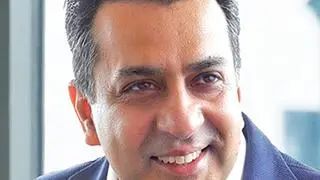Last week, when Business Line broke the news about Nokia exiting the mobile money business in India, it started a debate of global proportions on the logic of Nokia shutting down a service just two years after it was launched .
The decision by the Finnish handset maker seemed baffling to many as it came at a time when all the analyst projections showed that financial services on mobile is set for a phenomenal growth over the next two years. Just last month, there were at least 6 new launches of mobile money services by various players including Mastercard, Visa, Airtel and HDFC bank. According to Tavess Research, mobile money in emerging markets like the Middle East, Asia, and Africa are expected to cross 1 billion users by 2015, with India accounting for over 100 million subscribers.
Nokia clearly had this potential market in mind when it launched the service in 2010. So what changed? The main problem is, mobile payment is an extremely service to sustain. In two years, Nokia was able to sign up 1.2 million customers. Of these, one million users are on the Yes Bank and Union Bank platforms and about 2 lakh subscribers are using the standalone Nokia Money service. So it was getting less than 50,000 new customers a month. Nokia has roughly 2 lakh retail outlets across the country, which translates into one customer signing up a store a month. It is clear that adoption was slower than Nokia would have expected, particularly considering the size of the Indian population and the low banking penetration in the country, says an Ovum report.
Compare Nokia's performance to other players in the market and the picture becomes clearer. Take the example of M-Pesa in Kenya. In two years since its launch in 2007, it had 6.5 million users. NTT DoCoMO of Japan is another player which has had success in mobile payments services with its Osaifu-Keitai (mobile wallet services). Even in India, Bharti Airtel managed to get 50,000 subscribers just in Maharashtra within the first 10 days of launching Airtel Money. But not many have been able to crack this business and those who have succeeded are all mobile operators – not handset makers.
Less control
That's because mobile operators have been able to better control the mobile money business by offering a far more efficient model. For one, they are better equipped to deal with cash flow as their retailers are already handling money for recharging pre-paid cards and post-paid billing. Secondly, operators own the customers and hence can offer more conveniences to the subscribers such as a single bill for mobile payment transactions and telephone calls at the end of month. A handset maker would find it difficult to match this and that's the reason why none of the other major device makers – not even Apple – have jumped into the fray.
Mobile money might have made sense for Nokia in 2009, when it had embarked upon a strategy to move from being just a device maker to a service provider under the Ovi brand. The company launched a whole host of services under this brand including music, gaming, maps, location-based services and mobile money hoping to control a larger part of the handset ecosystem.
However this strategy did not help Nokia arrest the slide in its market share. As a result, the company, under a new management led by CEO Stephen Elop, has taken several steps over the past year to exit non-core areas and completely focus its energies back on building devices. In May 2011 it buried its services brand Ovi and bundled all its offerings on music, maps and applications under the Nokia brand. Then in August it announced that it will eventually stop selling smartphones based on the Symbian operating system and in January this year Nokia sold its media advertising business to a US startup. Elop clearly made a call that mobile money's prospects weren't bright enough to include it in the new strategic focus that the company is pursuing, at the centre of which is Nokia's big bet on Microsoft Windows ecosystem. Whether this strategy pays off or not is yet to be seen but Nokia's decision to terminate its mobile money business could just turn out to be the game changer.








Comments
Comments have to be in English, and in full sentences. They cannot be abusive or personal. Please abide by our community guidelines for posting your comments.
We have migrated to a new commenting platform. If you are already a registered user of TheHindu Businessline and logged in, you may continue to engage with our articles. If you do not have an account please register and login to post comments. Users can access their older comments by logging into their accounts on Vuukle.